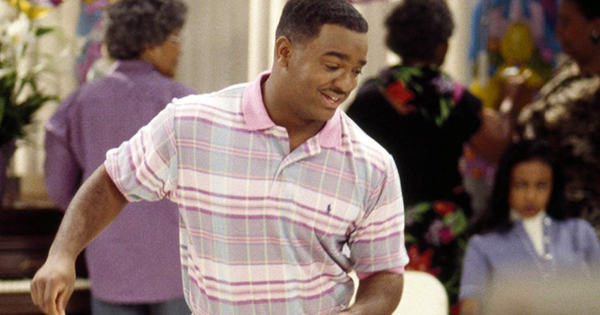
Nationwide — Alfonso Ribeiro, the comical actor who created the “Carlton Dance” in the 1991 episode of Fresh Prince of Bel-Air where he played Will Smith’s cousin Carlton, has been denied to have his famous dance step copyrighted. Apparently, Ribeiro’s “choreographic work” was just a “simple dance routine” and it is “not registrable.”
To solidify his lawsuit’s argument, he sought to copyright the Carlton Dance, but the U.S. Copyright Office reportedly refused to accept his application.
Saskia Florence, a supervisory registration specialist in the office’s Performing Arts Division, expounded on the reason for the copyright rejection in a correspondence written last month that went public last week.
“The dancer sways their hips as they step from side to side, while swinging their arms in an exaggerated manner,” Florence stated. “In the second dance step, the dancer takes two steps to each side while opening and closing their legs and their arms in unison. In the final step, the dancer’s feet are still and they lower one hand from above their head to the middle of their chest while fluttering their fingers.”
“The combination of these three dance steps is a simple routine that is not registrable as a choreographic work,” she stated.
Robert Brauneis, co-director of the intellectual property program at George Washington University Law School, said he wasn’t entirely shocked with the decision.
“That does not surprise me in the least,” Brauneis told The New York Times. “It’s like a word or a short phrase. The copyright office has always taken the position that words or phrases are not copyrightable, and this is exactly like a word or a phrase in a dance. You could repeat that word or phrase indefinitely — here I’m shaking my hips, here I’m shaking my hips, again and again — but that repetition doesn’t make the fragment subject to copyright protection.”
David Hecht, Ribeiro’s lawyer, said they are planning to ask the copyright office to reconsider their application. He claimed that even if the particular movements are simple, the way Ribeiro put it together qualifies as a choreographic work.
“It’s the same as when you combine notes in a musical composition,” Hecht said. “Those compilations would be entitled to copyright protection under the law.”
Meanwhile, on TMZ‘s report about Ribeiro’s lawsuit in December, it was noted that back in 2012, he said that he “stole” the movements from Courteney Cox’s moves in Bruce Springsteen’s “Dancing In The Dark” video and from an Eddie Murphy routine where he imitated white people dancing.
